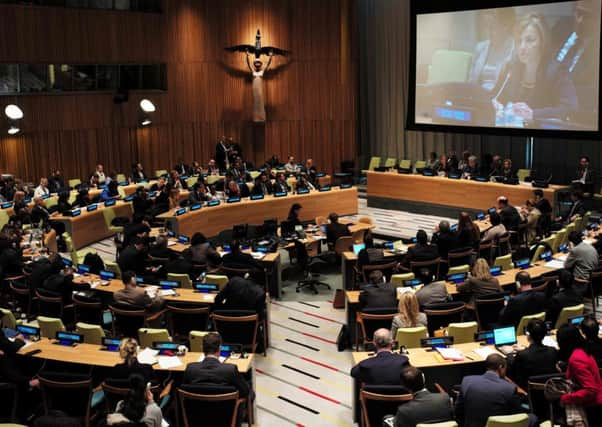UN quizzes nine candidates for position of secretary-general


General Assembly president Mogens Lykketoft, who presided over the question-and-answer sessions, said he was “very inspired” that in addition to almost all 193 UN member states taking part, 227,000 people from 209 countries and territories watched some of the webcast.
“It has already made a difference,” he said. “We have established a new standard of transparency and inclusivity for the selection of the secretary-general.”
Advertisement
Hide AdAdvertisement
Hide AdAccording to the UN Charter, the secretary-general is chosen by the 193-member General Assembly on the recommendation of the 15-member Security Council.
In practice, this has meant that the council’s five permanent members – the US, Russia, China, Britain and France – have veto power over the candidates. That will not change in deciding whom to recommend to succeed secretary-general Ban Ki-moon, whose second five-year term ends on December 31.
Lykketoft has said the question-and-answer sessions could be “a potential game-changer” if many countries support one candidate, which would put pressure on the Security Council not to choose someone else.
It’s too early to say if that will happen since more candidates are expected to throw their hats in the ring. Lykketoft encouraged those interested to “come forward quickly”.
Britain’s UN Ambassador Matthew Rycroft said questioning and hearing from every candidate “will increase the quality of the decision-making in the Security Council when the time comes, and I think it will raise the bar in terms of the overall quality of the field.”
Other council members were more cautious about the impact of the sessions.
Angola’s UN Ambassador Ismael Gaspar Martins said they “could offer the council a first view of who the potential candidates really are” and help them “choose properly”.
Russia’s UN Ambassador Vitaly Churkin said “some people seem to be excited” but he clearly wasn’t.”